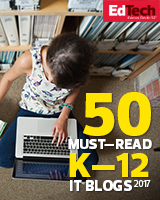Tip of the Week – Summer reading list
I know many of you are looking forward to summer and a more relaxed schedule.
Aren’t we all?
I always look forward to summer because it usually means more time to read stuff I didn’t get to during the winter. So my summer reading list is all planned out and ready to go!
But it got me thinking . . . what books should social studies teachers read?
Your homework? Pick at least one to read and discuss with another history buff.
What I Plan to Read This Summer:
- The Zookeeper’s Wife: A War Story
A true story—as powerful as Schindler’s List—in which the keepers of the Warsaw Zoo saved hundreds of people from Nazi hands. - The Great Influenza: The Epic Story of the Deadliest Plague in History
At the height of WWI, history’s most lethal influenza virus erupted in an army camp in Kansas, moved east with American troops, then exploded, killing as many as 100 million people worldwide. - The Rape of Europa: The Fate of Europe’s Treasures in the Third Reich and the Second World War
The cast of characters includes Adolf Hitler and Hermann Goering, Gertrude Stein and Marc Chagall–not to mention works by artists from da Vinci to Picasso. - The Worst Hard Time: The Untold Story of Those Who Survived the Great American Dust Bowl
The dust storms that terrorized the High Plains in the darkest years of the Depression were like nothing ever seen before or since. - Salt: A World History
The only rock we eat, salt has shaped civilization from the very beginning, and its story is a glittering, often surprising part of the history of humankind. - Assassination Vacation
A road trip like no other — a journey to the pit stops of American political murder and through the myriad ways they have been used for fun and profit, for political and cultural advantage. - Calendar: Humanity’s Epic Struggle To Determine A True And Accurate Year
The adventure spans the world from Stonehenge to astronomically aligned pyramids at Giza, from Mayan observatories at Chichen Itza to the atomic clock in Washington, the world’s official timekeeper since the 1960s.
(And, no, I probably won’t get to all of them. But it’s fun to dream!)
Some of my favorites in no particular order:
- Brain Rules
Most of us have no idea what’s really going on inside our heads. Yet brain scientists have uncovered details every business leader, parent, and teacher should know. - Mind Wide Open
Steven Johnson subjects his own brain to a battery of tests to find out what’s really going on inside. - Made to Stick: Why Some Ideas Die & Others Survive
Urban legends, conspiracy theories, and bogus public-health scares circulate effortlessly. Meanwhile, people with important ideas–business people, teachers, politicians, journalists, and others–struggle to make their ideas “stick.” - Battle Cry of Freedom
The definitive one-volume history of the Civil War. - Charlie Wilson’s War
The story of Texas congressman Charlie Wilson and his work to assist Afghan “freedom fighters” fighting Soviet invaders during the 1980s. - Confederates in the Attic: Dispatches from the Unfinished Civil War
An adventure into the soul of the unvanquished South, where the ghosts of the Lost Cause are resurrected through ritual and remembrance. - The Things They Carried
Is it a novel or a collection of short stories? It’s both – a collection of short pieces which reads with the dramatic force and tension of a novel that depicts a small group of men who fought in Vietnam. - A History of the World in Six Glasses
From beer to Coca-Cola, the six drinks that have helped shape human history. - The Partly Cloudy Patriot
In this insightful and funny collection of personal stories, Sarah Vowell travels through the American past and, in doing so, investigates the dusty, bumpy roads of her own life. - Citizen Soldiers: The U. S. Army from the Normandy Beaches to the Bulge to the Surrender of Germany
Historian Stephen Ambrose continues where he left off in his bestseller D-Day. - 1776
The intensely human story of those who marched with General George Washington in the year of the Declaration of Independence. - Practicing History
A splendid body of work by Barbara Tuchman, the story of a lifetime spent “practicing history.” - To America: Personal Reflections of an Historian
A very personal look at our nation’s history through the eyes of one of the twentieth century’s most influential historians. - Guns, Germs and Steel: The Fates of Human Societies
Winner of the Pulitzer Prize, Guns, Germs, and Steel is a brilliant work answering the question of why the peoples of certain continents succeeded in invading other continents and conquering or displacing their peoples. - Why Black People Tend to Shout: Cold Facts and Wry Views from a Black Man’s World
A collection of essays on popular culture as it relates to African Americans includes discussions of Spike Lee, Jackie Robinson, Bernhard Goetz, Marion Barry, “What Black People Don’t Like,” and “The Natural Superiority of Black Athletes.” - White Like Me: Reflections on Race from a Privileged Son
Racial privilege shapes the lives of white Americans in every facet of life, from employment and education to housing and criminal justice. Using stories from his own life, Tim Wise shows that racism not only burdens people of color, but also benefits those who are “white like him” — whether or not they’re actively racist. - Historical Thinking and Other Unnatural Acts: Charting the Future of Teaching the Past
This book demolishes the conventional notion that there is one true history and one best way to teach it. - Lies My Teacher Told Me: Everything Your American History Textbook Got Wrong
Americans have lost touch with their history, and in this thought-provoking book, Professor James Loewen shows why. After surveying twelve leading high school American history texts, he has concluded that not one does a decent job of making history interesting or memorable.
Additions? Subtractions?


















